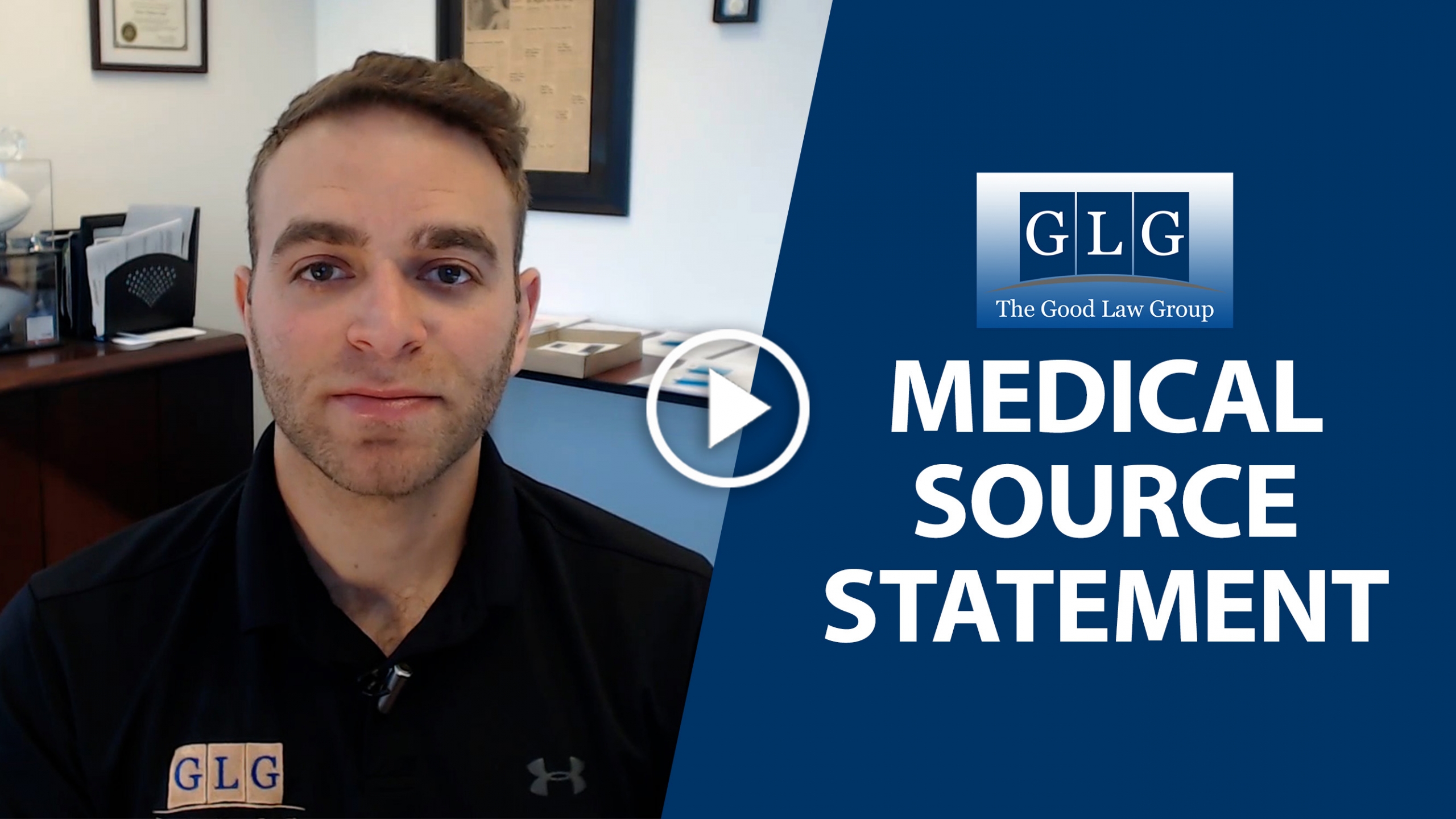An application for social security disability (SSD) benefits will only be approved if the claimant’s medical record supports both his disability and the negative impact the disability has on his ability to engage in substantial gainful activity. A medical source statement from the claimant’s physician is, in many cases, one of the most important pieces of evidence proving the negative impact an applicant’s disability has on his ability to work.
But why is that, when claimants are required to provide all evidence regarding their disability, including diagnosis, laboratory reports, physician notes and test results? Shouldn’t this evidence be enough to prove that the disability prohibits the claimant from earning a substantial wage? The answer is no, and the reason is that medical source statements elicit information from the claimant’s physician not routinely included in medical records.
Diagnosis, laboratory testing, MRIs, X-Rays, CT scans and other medical evidence can all prove that a claimant has a disability. Yet proving a disability is not enough to win approval of an SSD case. There are plenty of people who have a disability but are still able to work. In order to receive SSD benefits, the claimant must also prove that his disability makes him unable to participate in substantial gainful activity, either of the type the applicant was previously engaged in, or something similar.
Functional Residual Capacity
The types of medical evidence used to support a disability diagnosis generally do not contain information regarding the claimant’s functional residual capacity – what he can or cannot do as a result of the disability. For example, if the claimant is a construction worker who applies for SSD benefits due to a back injury, an X-ray, MRI or other test will prove or disprove the injury. But such tests cannot prove whether he still has the ability to lift and/or carry heavy objects, a requirement of working in the construction trade. In this case, the medical evidence proves the injury, but it does not prove the effect of that injury.
Without information on the claimant’s functional residual capacity in the medical record, then it is up to the disability examiner and medical consultants at the office of disability determination services – neither of whom are out to help you – to determine the disability’s impact on the claimant’s ability to work. They will make this determination even though in all likelihood, neither the disability examiner nor the medical consultant will ever meet with, or speak to, the applicant.
Medical Source Statements and Your SSD Application
A medical source statement, which you can obtain from your SSD attorney, can help your physician provide the information needed to prove that your disability severely impacts your ability to engage in substantial gainful activity. Medical source statements should include detailed information on the following:
- Diagnosis;
- Clinical exams performed and their results;
- Treatment prescribed, including dose, frequency and duration, and responses to each treatment;
- Laboratory findings, such as blood work, X-rays, MRIs, and CT scans;
- Functional capabilities and functional deficits, especially those that relate specifically to your ability to perform your job, such as walking, sitting, lifting and carrying, communication, and fine motor tasks (i.e., writing, typing or handling objects).
Your SSD attorney can answer any questions your physician has when completing the form.
During the initial application and reconsideration (the first level of appeal) reviews, disability examiners generally do not consider take the medical source statement when making a decision regarding your SSD application. However, if your application is denied during the initial review and reconsideration – which it most likely will be – the medical source statement becomes very important during the administrative law hearing. The administrative law judge almost always gives medical source statements full consideration, especially when they have been completed by a physician who has regularly treated the claimant for the disabling condition. Your SSD attorney will discuss with you whether the medical source statement should be submitted with the initial application or during the appeal process, should your claim be denied.
Are you applying for SSD benefits for the first time or do you need help with an application that has been denied? Contact The Good Law Group at #(847) 577-4476 or complete this form online for a free case evaluation.









